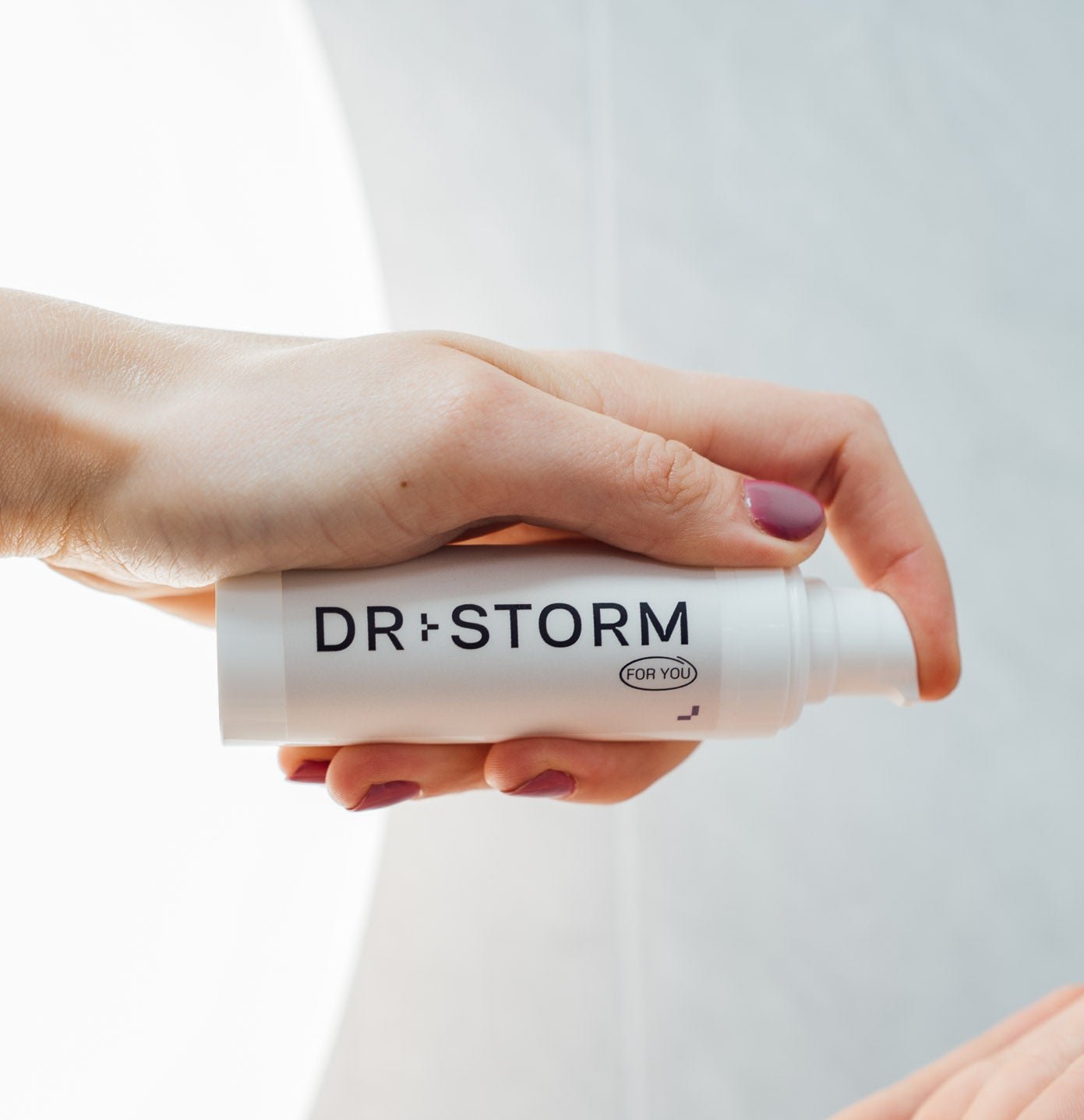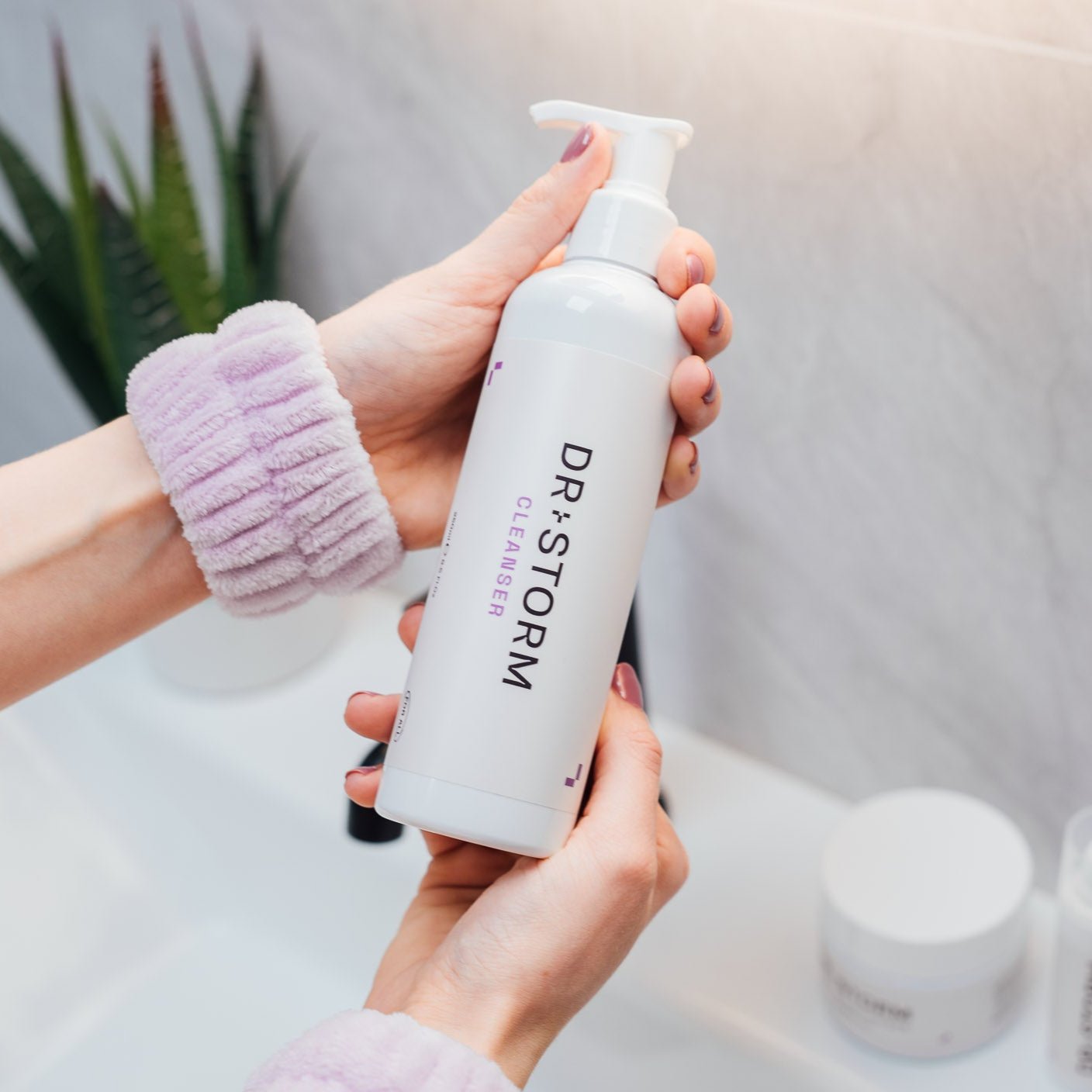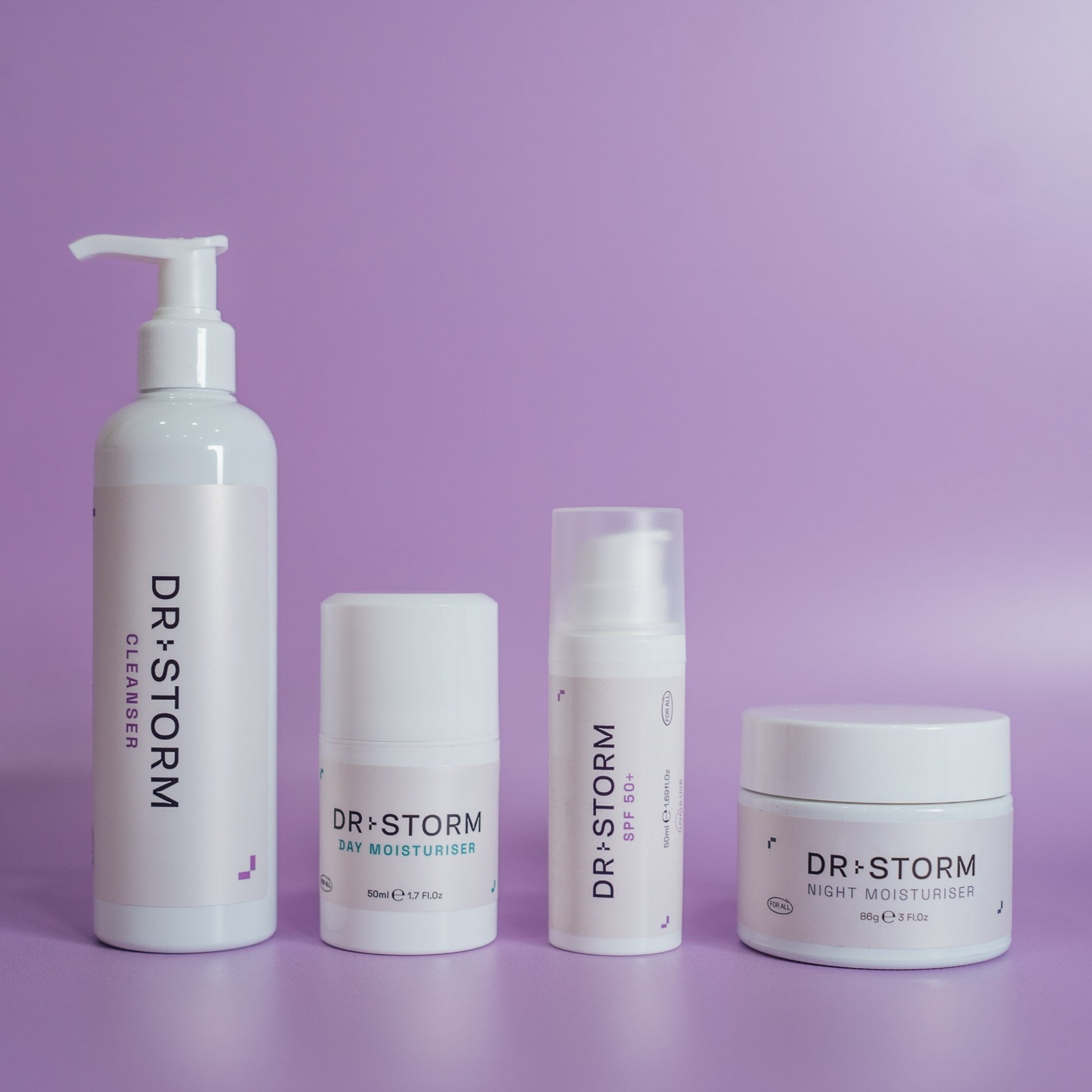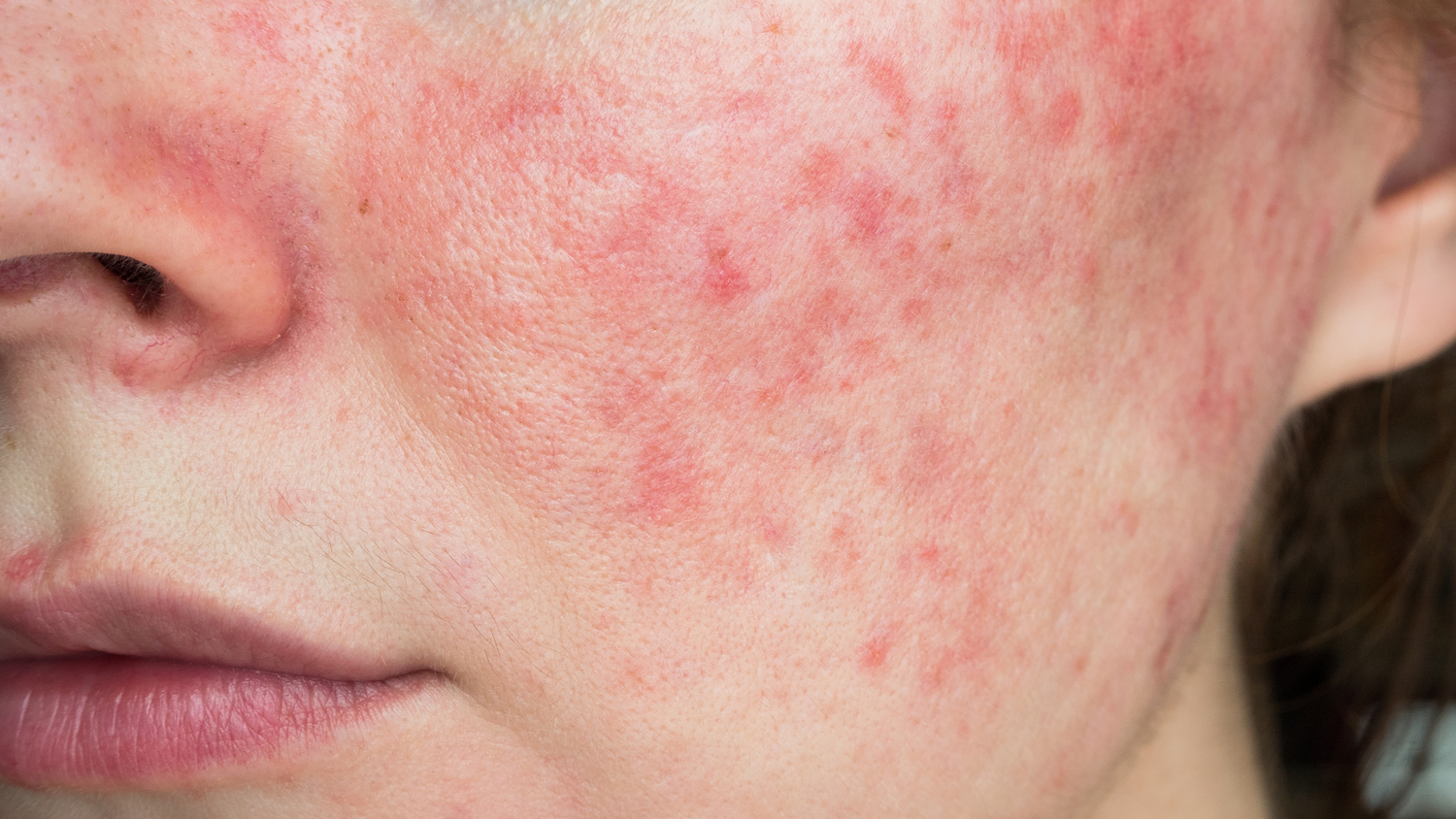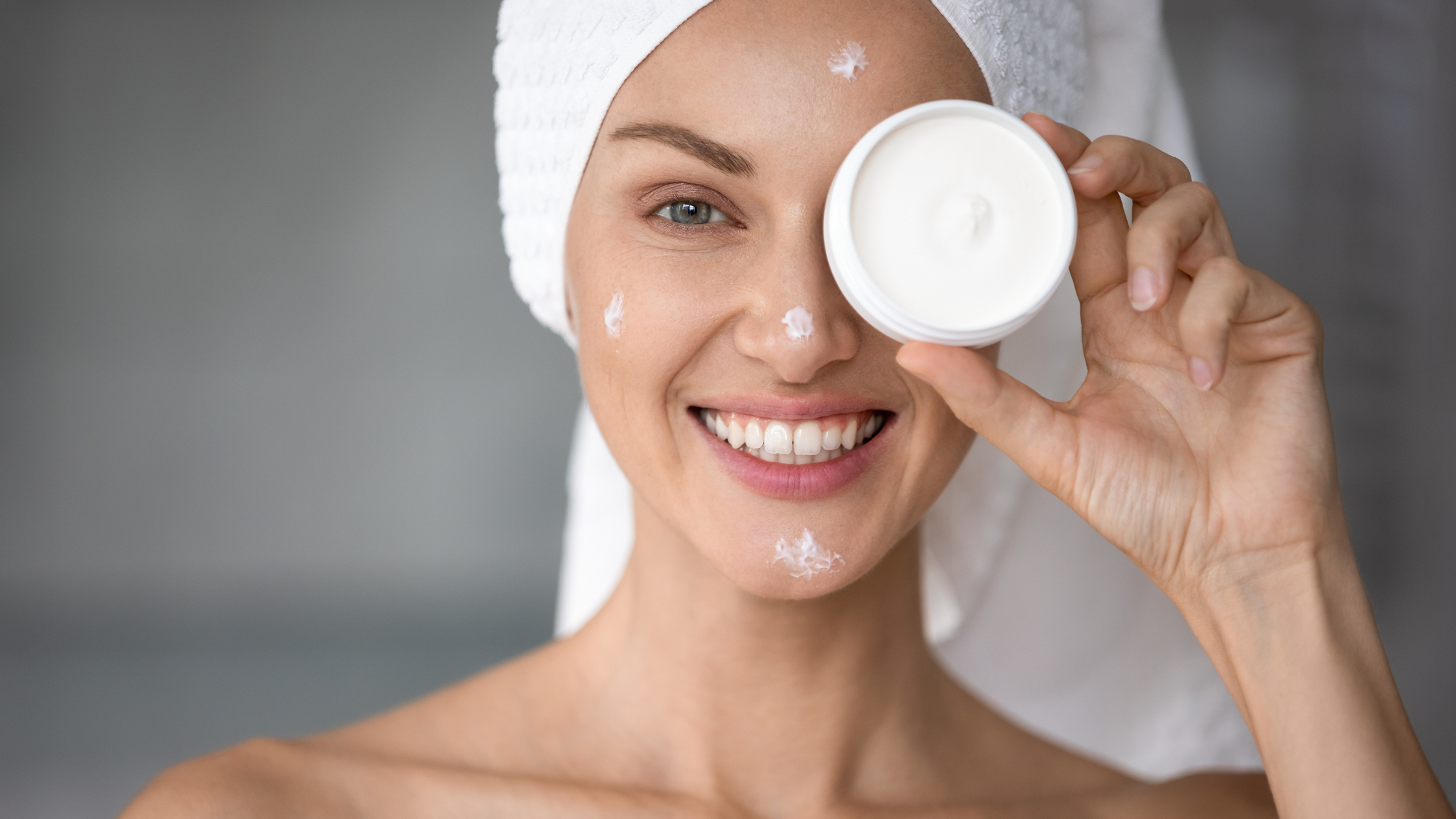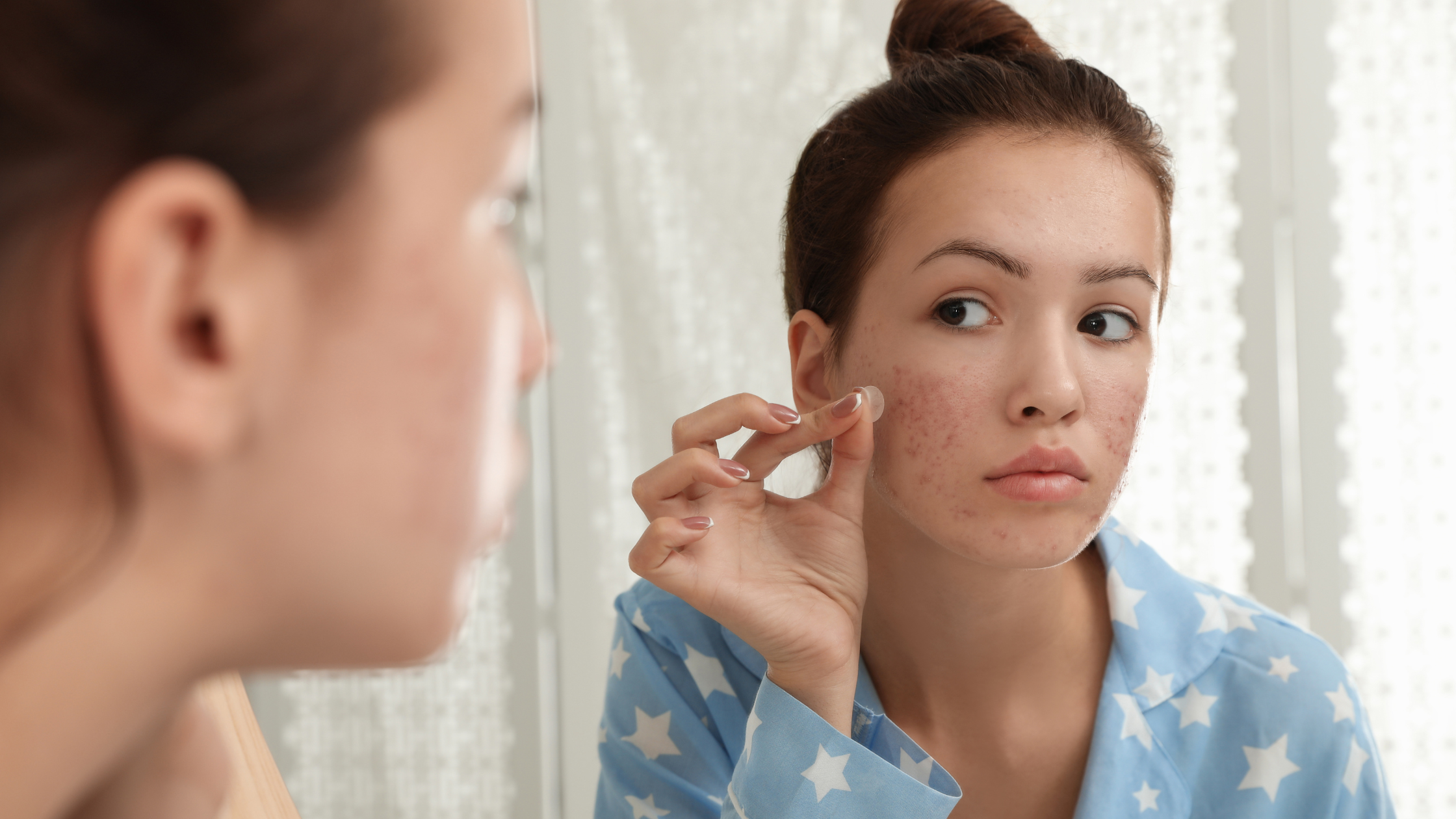Introduction
As an organ that constantly battles the elements, the skin is our first line of defence against a barrage of potential threats. Among its many layers and duties, the skin barrier is an unsung hero that maintains hydration, controls microbial invasion and protects against toxins. Yet, the significance of this vital guardian is often overlooked in common skincare routines.
In this comprehensive guide, we delve into every aspect of the skin barrier, from its structure and function to tackling perioral dermatitis and other common issues. We'll navigate the treacherous world of skincare ingredients and practices to reveal what truly works for a healthy skin barrier.
By comprehending the significance of the skin barrier, we can enhance our skincare routine and work towards achieving long-term beauty goals.
What is the Skin Barrier?
The skin barrier, also known as the moisture or lipid barrier, is a protective layer of the skin composed of fatty acids and ceramides alongside other lipids. It prevents transepidermal water loss and the penetration of foreign substances. When this barrier is compromised, issues such as dryness, redness, and accelerated ageing can occur.
Role and Function of the Skin Barrier
Your skin barrier is the outermost layer of your epidermis, made up of skin cells and lipids. It's a complex structure that, when functioning properly, prevents water loss and plays a significant role in protecting against harmful bacteria, pollutants, and UV radiation. The skin barrier is your best defence against environmental aggressors and maintains the integrity of the skin. Furthermore, it regulates hydration and preserves suppleness and elasticity. Conditions such as eczema and psoriasis are due to a skin barrier which is functioning incorrectly.
Components of the Skin Barrier
The skin barrier's key components are lipids, including ceramides, cholesterol, and fatty acids, which help form a protective barrier. Ceramides, in particular, help retain moisture and prevent dehydration, making up about 50% of skin lipids.
The skin is made up of three main layers: the epidermis, dermis, and hypodermis. The topmost layer is the epidermis, which consists of five sub-layers, including the stratum corneum - the outermost layer responsible for forming the skin barrier. The dermis is the middle layer and contains collagen, elastin, and other essential proteins for skin structure and elasticity. Finally, the hypodermis is the deepest layer that provides insulation and energy storage. Now that we have established the significance of the skin barrier, let's focus on the stratum corneum, which is the key player in maintaining its integrity.
The Building Blocks of the Skin Barrier: The Stratum Corneum
The stratum corneum is the outermost layer of the epidermis and serves as a protective barrier for the skin. It consists of multiple layers of dead skin cells, also known as corneocytes, that are held together by lipids and proteins. These cells act as bricks, while the lipids and proteins play the role of mortar to form a strong barrier.
The stratum corneum is an essential component of the skin barrier, responsible for regulating water loss and protecting against external stressors. It also helps maintain a healthy pH level and protects against harmful bacteria and irritants. As we age, our stratum corneum becomes thinner, making it easier for moisture to escape and external irritants to penetrate. This can lead to dryness, sensitivity, and an increased risk of skin damage.
Factors Negatively Affecting the Skin Barrier
Several factors can impact the health and function of the skin barrier. These include environmental factors, skincare products, and lifestyle choices.
Environmental Factors That Can Affect Your Skin
Environmental factors, such as UV radiation, pollution, and temperature changes, can have a significant impact on the skin barrier. These external aggressors can disrupt the delicate balance of lipids and proteins in the stratum corneum, leading to a compromised barrier function.
Have you ever noticed how dry your skin becomes in the winter months when going from cosy indoor heating to the harsh wind and cold outdoors? Disruption in temperature can cause an increase in TEWL (trans-epidermal water loss), resulting in dryness and dehydration of the skin.
Studies have also found that UV radiation can alter the composition of lipids in the stratum corneum, leading to an impaired skin barrier.
Additionally, pollution has been shown to damage proteins in the stratum corneum, compromising its ability to protect against external aggressors. These environmental factors can also trigger inflammation in the skin, further weakening the barrier function. It is crucial to protect our skin from these external aggressors to maintain a healthy and functioning skin barrier.
Thus, working outdoors can also significantly affect the skin barrier as exposure to sun and wind, and other environmental factors can lead to dryness, dehydration, and irritation of the skin. It is crucial for those who work outdoors to protect their skin by wearing protective clothing, staying hydrated, and using sunscreen.
Lifestyle Factors That Can Affect Your Skin
Smoking is a lifestyle factor that can significantly affect the skin barrier. Not only does it expose the skin to harmful chemicals and toxins, but it also reduces blood flow and oxygen supply to the skin. This reduction in blood flow can lead to a decrease in ceramide production, an essential component of the skin barrier. As a result, smokers are more prone to skin dryness, wrinkles, and premature ageing.
Another lifestyle factor that can affect the skin barrier is excessive alcohol consumption. Alcohol is a diuretic, meaning it can dehydrate the body and ultimately lead to dehydration of the skin. This dehydration can impact the stratum corneum's ability to retain moisture and regulate water loss, compromising the skin barrier.
Diet plays a crucial role in the health and function of our skin barrier. Incorporating foods rich in essential nutrients such as vitamins A, C, E, and omega-3 fatty acids can help to strengthen and support the skin barrier. Foods like salmon, avocados, and sweet potatoes are excellent sources of these nutrients. There is some debate about drinking water and its role in skin barrier function. Although it is not clear if the amount of water you drink directly affects the hydration of the skin, it is obviously important for your general health.
Stress is another lifestyle factor that can impact the skin barrier. When we are stressed, our bodies produce a hormone called cortisol, which can lead to increased oil production and inflammation in the skin. This imbalance can disrupt the skin's natural barrier function, making it more susceptible to damage and irritation.
Skincare Products
Choosing the right skincare products is crucial for maintaining a healthy skin barrier. Harsh chemicals and irritants commonly found in skincare products can disrupt the delicate balance of the skin barrier, leading to inflammation and damage.
It is essential to be cautious of products with harsh ingredients like sulphates and fragrances, as they can damage the skin barrier. Acids, alcohol and some retinoids can disrupt the lipid balance in the stratum corneum, leading to an impaired barrier function.
Additionally, essential oils and citrus extracts can cause irritation and inflammation, which can weaken the skin barrier. It is important to read the ingredients list and avoid products with these potentially harmful ingredients to maintain a strong and functioning skin barrier. Remember, what we put on our skin can greatly affect its health and vitality. So, it is always best to choose gentle and nourishing skincare products that support the skin barrier for optimal skin health.
Common Skin Barrier Issues
Barrier damage and compromised skin can manifest in various ways, depending on the severity and cause of the issue. Some common signs include dryness, dehydration, sensitivity, irritation, redness, inflammation, and acne breakouts. In severe cases, it may also lead to conditions like eczema, psoriasis, and rosacea. The skin may appear dull, rough, and lacking lustre. Fine lines and wrinkles may also be more visible due to increased moisture loss from the skin. If you notice any of these signs, it is important to consult a dermatologist for proper diagnosis and treatment.
Perioral Dermatitis:

What causes Perioral Dermatitis?
The exact cause of perioral dermatitis is unknown, but one of its exacerbating factors is believed to be skin barrier compromise. This can happen due to prolonged use of topical steroids, harsh skincare products, or even hormonal changes. Certain ingredients in cosmetics, like fragrances and dyes, can also trigger this condition.
What are the symptoms of Perioral Dermatitis?
Perioral dermatitis symptoms include red, bumpy rashes around the mouth and nose. These can be itchy and may also cause a burning or stinging sensation.
What are the treatment options for Perioral Dermatitis?
Treatment for perioral dermatitis involves identifying and removing the trigger, if possible. This may mean stopping the use of certain skincare products or medications. Your doctor may also prescribe topical medications or oral antibiotics to help clear up the rash.
Dryness and dehydration
How a weakened skin barrier causes dryness and dehydration
When the skin barrier is compromised, it becomes less effective in retaining moisture and regulating water loss. This can result in dry, flaky, and dehydrated skin. The damaged barrier also allows irritants and allergens to penetrate the skin more easily, leading to inflammation and further weakening of the barrier.
What are the treatment options for dehydration as a result of a damaged skin barrier?
To treat dehydration caused by a damaged skin barrier, it is important to focus on repairing and strengthening the barrier itself. This can be done by incorporating gentle and nourishing skincare products with no fragrance and reducing exposure to external aggressors such as extreme temperatures.
Acne
What causes acne?
Contrary to popular belief, acne is not caused by poor hygiene or dirty skin. Instead, it is often a result of hormonal imbalances or genetics. However, having a weakened skin barrier can also contribute to acne flares in those who are predisposed to this condition. When the skin barrier is compromised, it allows for bacteria and irritants to penetrate deeper into the skin, leading to inflammation and breakouts. To help prevent acne flares, it is essential to maintain a healthy skin barrier with gentle yet effective skincare products.
What are the symptoms of acne as a result of a damaged skin barrier?
Acne caused by a damaged skin barrier may appear as red, inflamed pimples or whiteheads. It can also be accompanied by redness, dryness and irritation in the affected areas.
What are the treatment options for acne as a result of a damaged skin barrier?
A common mistake that many people with acne make is reaching for too many harsh products such as AHAS/BHAS, clay masks and treatments such as peels or microdermabrasion thinking that it will help oil production and reduce acne. However, as a result, they end up damaging their skin barrier and making things worse. Instead, focus on repairing and strengthening the skin barrier with gentle products and moisturisers and consult your doctor for medication to treat the condition.
"In my opinion, I would recommend getting proper personalised treatment from a medical professional that is scientifically proven to treat acne and keep everything else really simple. Please don't go out and spend a fortune on over the counter products thinking it will help, it not only costs you more money and time but can also make things worse!" - Dr Judith Storm.
Rosacea
What is rosacea?
Rosacea is a chronic skin condition that causes redness, flushing, and visible blood vessels on the face. It can also cause bumps and pimples, similar to acne.
How does a weakened skin barrier contribute to rosacea flare-ups?
A compromised skin barrier allows irritants and allergens to penetrate deeper into the skin, leading to inflammation and triggering rosacea flare-ups. Additionally, the imbalance in oil production caused by a damaged barrier can also lead to increased redness and sensitivity.
What are the treatment options for rosacea as a result of a damaged skin barrier?
Treating rosacea involves managing symptoms and triggers, as there is no known cure for this condition. Protecting and repairing the skin barrier can help reduce inflammation and redness. It is also essential to avoid any potential irritants or triggers, such as harsh skincare products or extreme temperatures. Your doctor may also prescribe medications to help manage symptoms.
Eczema
What is eczema?
Eczema, also known as atopic dermatitis, is a chronic inflammatory skin condition characterised by dry, itchy, and inflamed skin.
How does a damaged skin barrier contribute to eczema flare-ups?
A weakened skin barrier is a common cause of eczema. When the barrier is compromised, it allows irritants and allergens to penetrate the skin more easily, leading to inflammation and triggering eczema flare-ups. This cycle can continue if the barrier is not properly repaired and maintained.
What are the treatment options for eczema as a result of a damaged skin barrier?
The key to managing eczema is focusing on repairing and strengthening the skin barrier. This can be done by incorporating gentle, fragrance-free skin care products, avoiding potential irritants or triggers, and keeping the skin well-moisturised. Your doctor may also prescribe topical or oral medications to help control symptoms. In severe cases, light therapy or immunosuppressants may be recommended.
Tips for Enhancing the Skin Barrier To maintain a strong and healthy skin barrier, here are some tips to keep in mind:
-
Cleanse using a gentle cleanser once a day only - Harsh cleansers can strip the skin of its natural oils, disrupt the pH balance, and compromise the skin barrier function. It is best to opt for mild and non-irritating/non-foaming cleansers that effectively remove dirt and impurities without causing any damage. Additionally, it is recommended to avoid over-cleansing as it can also disrupt the skin barrier. Foaming cleansers contain surfactants that help bubbles form; however, they often lead to the skin feeling "dry and tight" after cleansing. Our Dr Storm cleanser is fragrance-free, non-foaming and skin barrier friendly- Basically Brilliant Cleanser
-
Use an ointment-based moisturiser - When the skin barrier is damaged, it needs extra nourishment and hydration to repair itself. Ointment-based moisturisers are thicker and more occlusive, forming a protective layer over the skin and preventing water loss. Applying moisturiser after cleansing and before using other skincare products can help lock in moisture and improve the overall health of the skin barrier. Purchase our multi-purpose ointment-based moisturiser - Basically Brilliant Night Moisturiser
-
Keep your skincare routine simple- Using too many products or constantly switching products can be harmful to the skin barrier. Stick to a simple, consistent routine with gentle and nourishing products that are suitable for your skin type.
-
Avoid harsh ingredients- Pay attention to the ingredients in your skincare products and avoid harsh chemicals such as alcohol, fragrance, and certain preservatives. These can strip the skin of its natural oils and disrupt the skin barrier.
-
Protect your skin from external aggressors- Extreme temperatures, sun exposure, pollution, and harsh weather conditions can all damage the skin barrier and lead to various skin concerns. Be sure to protect your skin with SPF and comfortable clothing, and avoid prolonged exposure to extreme temperatures. Our Dr Storm SPF50 is lightweight, broad spectrum and moisturising.
-
Change your lifestyle - Stop smoking, reduce stress, eat a more balanced diet and drink more water- all these changes can really help reduce inflammation and support skin health.
-
Listen to your skin- Remember to always listen to your skin's needs and make necessary adjustments to your routine for a strong and resilient skin barrier.
-
Consult a medical professional- If you are dealing with persistent skin concerns, it is best to seek advice from a medical professional who can provide proper diagnosis and treatment options tailored to your specific needs. Get in touch here.
By following these tips and incorporating them into our skincare routine, we can help maintain a strong and resilient skin barrier, promoting overall skin health and radiance. Remember to always be mindful of what you put on your skin and give it the care it deserves for a healthy and functional barrier.
The Role of Tretinoin is to Support the Skin Barrier
Tretinoin is a derivative of vitamin A that is commonly used in skincare products for its anti-ageing benefits. However, it also plays a role in thickening the stratum corneum, the outermost layer of the epidermis. This helps to strengthen and protect the skin barrier by increasing its thickness and ability to retain moisture over time.
Tretinoin also promotes healthy cell turnover, resulting in smoother and healthier-looking skin. However, it is important to use tretinoin as directed by a medical professional, as it can cause irritation and sensitivity if not used properly. It is also crucial to incorporate hydrating ingredients into your routine when using tretinoin to prevent dryness and maintain a strong skin barrier.
Remember, the best one for you is the one that your skin can tolerate every night without damaging your skin barrier, consistency provides results not the strength of the product. At Dr Storm we understand that everyone's skin is unique and we want to speak to you directly and work with you to help you achieve healthy and glowing skin, book a consultation here.
Conclusion
As we have seen, a damaged skin barrier can lead to a variety of skin conditions and concerns, from dryness and dehydration to acne and rosacea. Therefore, it is crucial to prioritise repairing and strengthening the skin barrier through proper skincare practices and seeking medical treatment when necessary. Remember, a healthy skin barrier is the foundation of healthy and radiant skin. So take care of it, and your skin will thank you! Good luck on your journey towards healthier skin! Happy healing!
This content is not intended to be a substitute for professional medical advice, diagnosis, or treatment. Always seek the advice of your physician or other qualified health provider with any questions you may have regarding a medical condition.
---------------------------------------------------------------------------------------------
References:
- https://pubmed.ncbi.nlm.nih.gov/30499486/
- https://www.aad.org/public/everyday-care/skin-care-basics/dry/prevent-restore-skin-barrier
- https://www.dermalinstitute.com/article/73/
- https://www.health.harvard.edu/blog/protect

